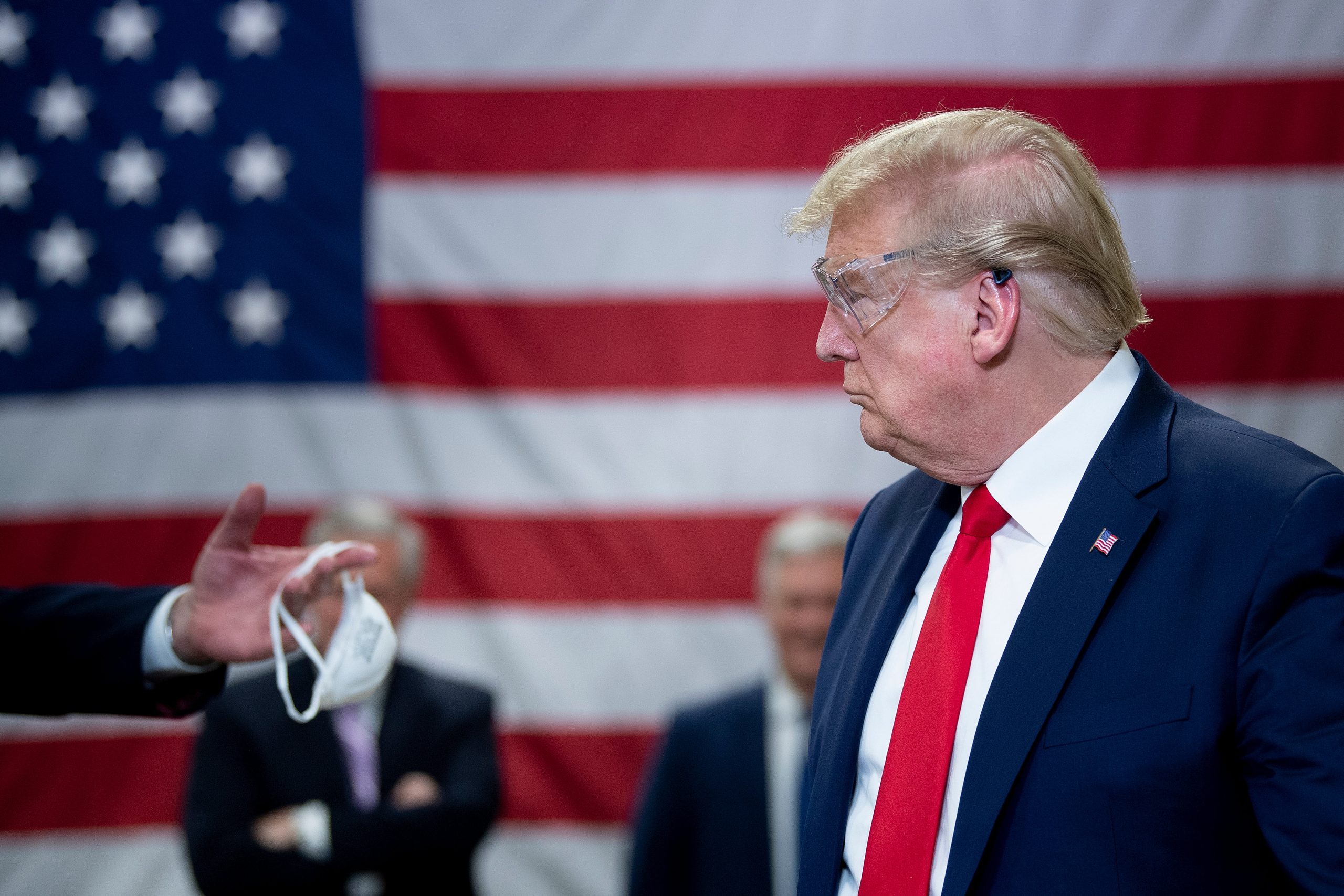The White House's coronavirus task force is shifting its focus away from emergency response and toward economic recovery from the COVID-19 crisis, even as the president openly acknowledges that the cost for easing restrictions affecting the US economy at this time may be paid in human lives.
Vice President Mike Pence told media on Tuesday that the task force managing the federal response to the novel coronavirus could be disbanded in the next month following "the tremendous progress we’ve made as a country." Today, however, President Donald Trump walked Pence's statement back—sort of.
Trump this morning claimed victory for the task force in a four-tweet thread. "Because of this success," he concluded, "the Task Force will continue on indefinitely with its focus on SAFETY & OPENING UP OUR COUNTRY AGAIN." The composition of the task force may now change "as appropriate," he added, with new members coming on board and old ones leaving, and will "also be very focused on Vaccines & Therapeutics."
One key member of the task force who seems at risk for ouster is Dr. Anthony Fauci, the nation's top infectious disease expert. Fauci's strongly science-based approach has conflicted with the president in the past. More recently, Fauci has publicly cautioned states against reopening too soon, warning that resurgences of the disease are likely to follow.
The announced shift came as a surprise to some of the members of the task force, The Wall Street Journal and CNN both reported, citing sources who said members learned about the change for the first time from Trump's tweets and were unsure what the task force would be doing going forward.
It's not difficult to make the argument that the crisis is far from over. Across the US, COVID-19 has led to more than 70,000 deaths so far. A leaked internal administration report published yesterday projected 3,000 coronavirus-related deaths per day in the US by the end of this month, about double the current average of 1,750 per day.
"Will some people be affected? Yes. Will some people be affected badly? Yes. But we have to get our country open and we have to get it open soon," Trump said in a televised interview with ABC News.
"It's possible there will be some [deaths] because you won't be locked into an apartment or a house or whatever it is," Trump told ABC, but "We can’t sit in the house for the next three years."
"There'll be more death, that the virus will pass, with or without a vaccine," Trump added. "And I think we're doing very well on the vaccines but, with or without a vaccine, it's going to pass, and we're going to be back to normal. But it's been a rough process. There is no question about it."
Despite the hardships posed by closed schools and lost jobs, however, recent polling finds that a majority of Americans think the country is nowhere near ready to reopen.
The Washington Post yesterday published the results of a poll it conducted jointly with the University of Maryland, which found that Americans are making their peace with going to the grocery store but feel uncomfortable with leaving the house for other commerce. Among respondents, 44 percent said they are uncomfortable grocery shopping, 67 percent said they would be uncomfortable shopping for clothing in a bricks-and-mortar retail store, and 78 percent said they would be uncomfortable eating out in a restaurant.
In the poll, 82 percent of respondents also said movie theaters should not be allowed to reopen at this time. Nearly as many, 78 percent, said gyms should be forced to remain closed, and 74 percent said restaurants and nail salons should remain closed.
More than 60 percent of respondents also wanted gun shops, barber shops and hair salons, and other retail stores to be closed. Golf courses, which are primarily large outdoor spaces, met the least opposition, but even then, 59 percent of respondents said they should remain closed as well.


